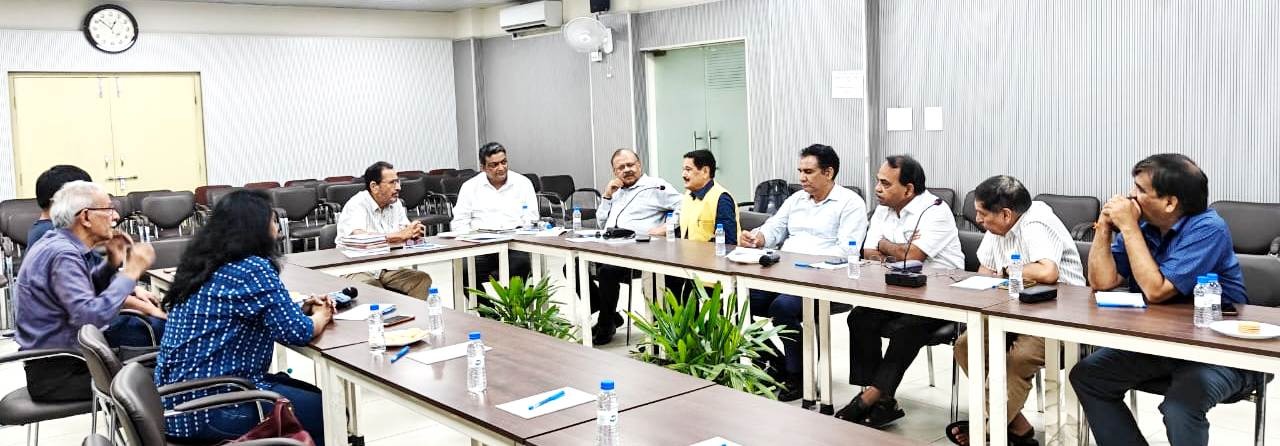Dehradun, September 09 (HS). A round table conference on the water system of Uttarakhand was organized by the Doon Library and Research Center in the library auditorium on Monday. Experts expressed concern over the depleting groundwater reserves and overall mismanagement of water resources in the state.
Professor BK Joshi, founder director of Doon Library and Research Centre, provided an overview of the state's dwindling water resources. Retired PCCF AR Sinha shared his experience on the role of water bodies and streams in watershed development and maintaining river flow. He focused on hydrology, the role of tree species and vegetation cover in regulating water. Dr Vinod Kothari of Tata Trust shared knowledge and learnings on springshed management. He stressed the need to work on the task of preparing a water body inventory in the state. He said that more than 90 per cent of the rural population in the state depends on water bodies for drinking water and other needs. Linking water bodies to livelihood opportunities is important for water conservation.
HP Uniyal, formerly associated with the Uttarakhand government and the State Planning Commission, shared his views on water resource management. He said that more research is needed to understand the hydrogeology of springs. The straight jacket approach used for springshed management may not work in the different spring typologies and geological diversity of Uttarakhand. He stressed the need to identify chaals (natural water storage), khals (ponds) in Uttarakhand.
Eminent hydrologist Dr. SK Bharatri focused on the technical aspects of the use of isotope method in identifying drying water sources, surface water drainage and recharge areas. He shared important information from studies done more than three decades ago on the Kosi basin of Almora. Famous archaeologist Prof. MP Joshi demonstrated water management techniques prevalent in the past and explained how knowledge about traditional water management is disappearing from the society. Conference convener and Chief Executive of CIDAR Dr. Vishal Singh also spoke on the water flow and their conservation in Uttarakhand.
Some of the important aspects that emerged in the roundtable conference were that even after 24 years of formation of Uttarakhand state, there is no solid water policy in the state. Similarly, the rules for groundwater extraction are also arbitrary. The techniques of road and other development construction are also haphazard and this can affect groundwater sources. Similarly, very little attention is paid to the conservation of recharge areas. Understanding the importance of pastures, work has to be done towards their conservation as they help in groundwater recharge. Along with this, they also conserve huge amounts of carbon and biodiversity. The expert group emphasized on developing a pressure group to improve water management and governance in the state. Population and tourism pressure is going to increase in the Himalayan region of Uttarakhand in future, so some steps should be taken immediately regarding water management.
Doon Library has been organizing round table discussions from time to time on important issues related to Uttarakhand and Himalayas. Earlier, in the light of Kedarnath disaster, two such round table conferences have been organized on natural disaster and forest fire thereafter. During this, Doon Library and Research Center's Program Associate Chandrashekhar Tiwari and social historians Dr. Yogesh Dhasmana and Sundar Singh Bisht were present.
 look news india
look news india
